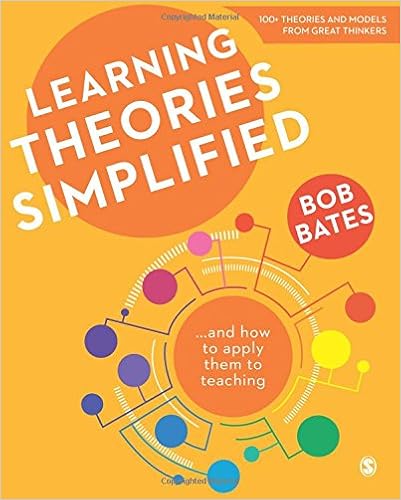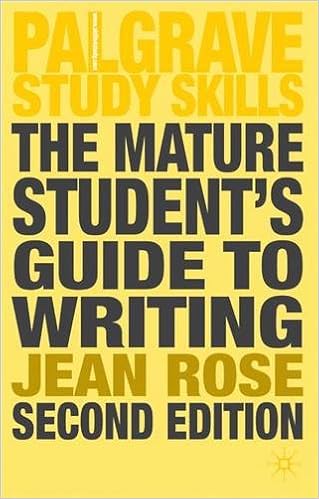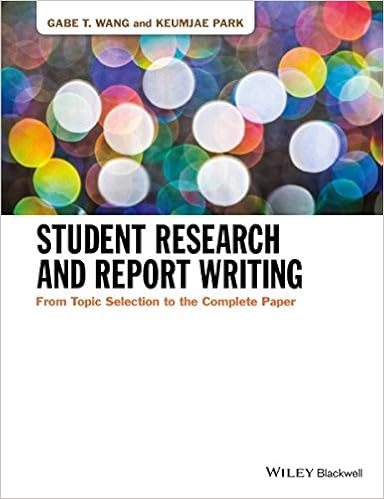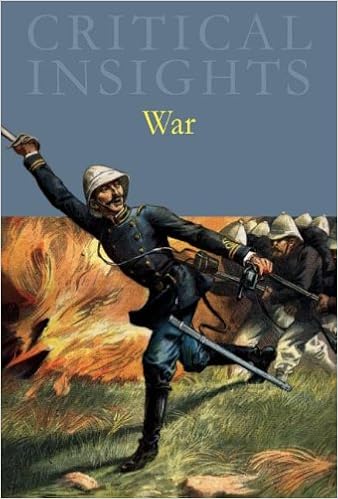| ||
|
Dunwoody Reference Librarians Blog
Thursday, May 10, 2018
Summer 2018 Registration Dates
In case a student asks at the desk...
Monday, April 24, 2017
Wireless Help
Check your mail from today for more details on helping students with wireless problems.
Here's the short version.
1. Ask if they have changed their password or been notified to do so recently. This is the reason for the vast majority of wireless problems.
2. Have them reset their password on a wired network computer.
3. Follow directions to reset on their devices found on this page: http://technology.gsu.edu/technology-services/it-services/wireless-networks/
4. If all else fails, send to CAT-Lab (if open) or call technology help line. 404-413-4357
Here's the short version.
1. Ask if they have changed their password or been notified to do so recently. This is the reason for the vast majority of wireless problems.
2. Have them reset their password on a wired network computer.
3. Follow directions to reset on their devices found on this page: http://technology.gsu.edu/technology-services/it-services/wireless-networks/
4. If all else fails, send to CAT-Lab (if open) or call technology help line. 404-413-4357
Tuesday, April 18, 2017
Environmental Studies Assignment
Cody Luedtke is requiring her students to use the Council of Science Editors documentation style and a very specific template to format a research paper. (All new to me!) There is a copy of the assignment with examples of citations at the ref desk. Though there are various online helps from different universities, I think it best to stick with the simplified guidelines this instructor distributed through iCollege.
Thursday, April 13, 2017
WORD 2016
Some of the student computers have malformed or no shortcuts to MS Office applications. Occasionally the student receives a message that the copy of WORD is unauthorized or not installed when trying to open a document from thumb drive or email.
If the pathway to an installed application is not formed, the student must first open ALL Programs from the start menu and navigate to MSOffice and the app they need. Once they initialize the application, it will usually open their imported/saved document. A live short cut is sometimes added to their profiles for future use.
If opening WORD from ALL Programs doesn't work, please let me know the computer number so I can initiate a help desk ticket.
Thanks.
If the pathway to an installed application is not formed, the student must first open ALL Programs from the start menu and navigate to MSOffice and the app they need. Once they initialize the application, it will usually open their imported/saved document. A live short cut is sometimes added to their profiles for future use.
If opening WORD from ALL Programs doesn't work, please let me know the computer number so I can initiate a help desk ticket.
Thanks.
Print/Copy Refunds
The official stance of GSU is no refunds.
Here is what the Panther Print site [http://technology.gsu.edu/technology-services/it-services/labs-and-classrooms/computer-labs/pantherprint/] says about poor quality prints:
The only time a refund will be given is from a Panther Cash account at the time a student graduates or leaves the university. In which case, use this form:
http://panthercard.gsu.edu/files/2013/03/REfundREquest.pdf
If students have any questions or concerns, they are to call the Auxilliary Services Office: 404-413-9500.
Here is what the Panther Print site [http://technology.gsu.edu/technology-services/it-services/labs-and-classrooms/computer-labs/pantherprint/] says about poor quality prints:
Reprints
It is important to verify the accuracy and indicated cost of your print job before releasing to the printer. In case you send the wrong print job or change your mind about printing it, you are not obligated to print it. Simply do not print the job from the print release station and it will automatically be removed from the system later. If your print job jams or the print quality is poor, you may ask for a reprint. However, we are unable to provide credits or refunds. Simply ask a lab attendant for help if you need any assistance with print quality or use of the PantherPrint system.
(Presumably this also applies to copies, though I could find no documentation of that online.)
The only time a refund will be given is from a Panther Cash account at the time a student graduates or leaves the university. In which case, use this form:
http://panthercard.gsu.edu/files/2013/03/REfundREquest.pdf
If students have any questions or concerns, they are to call the Auxilliary Services Office: 404-413-9500.
Thursday, April 6, 2017
New Electric Stapler
There is a new electric stapler at the Ref Desk. It works best with the Bostitch heavy duty staples in the parts drawer. Please use those. Ask Susan if you need more.
Tuesday, March 14, 2017
New Books at Dunwoody (4 of 4)
Here is the final batch:

Puerto Ricans in the United States
Though their presence in the United States is long standing, knowledge about Puerto Ricans their culture, history, socioeconomic status, and contributions has been decidedly inadequate. Edna Acosta-Belén and Carlos Santiago change this status quo, presenting a nuanced portrait of both the community today and the trajectory of its development.

Sexual Minorities and Politics
Sexual Minorities and Politics is the first book to provide students with an up-to-date, thorough, and comprehensive overview of the historical, political, and legal status of sexual and gender minorities.

Bad Call
Bad Call looks at the technologies used to make refereeing decisions in sports, analyzes them in action, and explains the consequences.

Bellevue
David Oshinsky, whose last book, Polio: An American Story, was awarded a Pulitzer Prize, chronicles the history of America's oldest hospital and in so doing also charts the rise of New York to the nation's preeminent city, the path of American medicine from butchery and quackery to a professional and scientific endeavor, and the growth of a civic institution.

The Classical World
An authoritative and accessible study of the foundations, development, and enduring legacy of the cultures of Greece and Rome, centered on ten locations of seminal importance in the development of Classical civilization.

Climate Change: A Wicked Problem
Under one cover, Frank Incropera provides a comprehensive, objective and critical assessment of all issues germane to the climate change debate: science, technology options, economic ramifications, cultural and behavioural issues, the influence of special interests and public policy, geopolitics, and ethical dimensions.

The Colorblind Screen
In The Colorblind Screen, the contributors examine television’s role as the major discursive medium in the articulation and contestation of racialized identities in the United States.

Learning Theories Simplified












Puerto Ricans in the United States
Though their presence in the United States is long standing, knowledge about Puerto Ricans their culture, history, socioeconomic status, and contributions has been decidedly inadequate. Edna Acosta-Belén and Carlos Santiago change this status quo, presenting a nuanced portrait of both the community today and the trajectory of its development.

Sexual Minorities and Politics
Sexual Minorities and Politics is the first book to provide students with an up-to-date, thorough, and comprehensive overview of the historical, political, and legal status of sexual and gender minorities.

Bad Call
Bad Call looks at the technologies used to make refereeing decisions in sports, analyzes them in action, and explains the consequences.

Bellevue
David Oshinsky, whose last book, Polio: An American Story, was awarded a Pulitzer Prize, chronicles the history of America's oldest hospital and in so doing also charts the rise of New York to the nation's preeminent city, the path of American medicine from butchery and quackery to a professional and scientific endeavor, and the growth of a civic institution.

The Classical World
An authoritative and accessible study of the foundations, development, and enduring legacy of the cultures of Greece and Rome, centered on ten locations of seminal importance in the development of Classical civilization.

Climate Change: A Wicked Problem
Under one cover, Frank Incropera provides a comprehensive, objective and critical assessment of all issues germane to the climate change debate: science, technology options, economic ramifications, cultural and behavioural issues, the influence of special interests and public policy, geopolitics, and ethical dimensions.

The Colorblind Screen
In The Colorblind Screen, the contributors examine television’s role as the major discursive medium in the articulation and contestation of racialized identities in the United States.

Learning Theories Simplified
Written for busy teachers, trainers, managers and students, this dip-in dip-out guide makes theories of learning accessible and practical. It explores over 100 classic and contemporary learning theorists in an easy-to-use, bite-sized format with clear relevant illustrations on how each theory will benefit your teaching and learning. Each model or theory is explained in less than 350 words, many with accompanying diagrams, and the ‘how to use it’ sections, in less than 500 words.

The Mature Student's Guide to Writing

In Millennium, bestselling historian Ian Mortimer takes the reader on a whirlwind tour of the last ten centuries of Western history. It is a journey into a past vividly brought to life and bursting with ideas, that pits one century against another in his quest to measure which century saw the greatest change.

When Moral Politics was first published two decades ago, it redefined how Americans think and talk about politics through the lens of cognitive political psychology. Today, George Lakoff’s classic text has become all the more relevant, as liberals and conservatives have come to hold even more vigorously opposed views of the world, with the underlying assumptions of their respective worldviews at the level of basic morality. Even more so than when Lakoff wrote, liberals and conservatives simply have very different, deeply held beliefs about what is right and wrong.

A unique and compelling portrait of William F. Buckley as the champion of conservative ideas in an age of liberal dominance, taking on the smartest adversaries he could find while singlehandedly reinventing the role of public intellectual in the network television era.

This is an invaluable, concise, all-in-one guide for carrying out student research and writing a paper, adaptable to course use and suitable for use by students independently, it successfully guides students along every step of the way.


In this remarkable and often-shocking book, Calhoun dissects the moral, psychological, and cultural impact that drone killings are having on modern society.

A trenchant exploration of race, class, and identity, The Weight of Shadows is a searing meditation on the nature of political, linguistic, and cultural borders, and the meaning of “America.”

In her award-winning book The Woman Warrior, Maxine Hong Kingston created an entirely new form—an exhilarating blend of autobiography and mythology, of world and self, of hot rage and cool analysis. First published in 1976, it has become a classic in its innovative portrayal of multiple and intersecting identities—immigrant, female, Chinese, American.

Women’s Rights in the USA is a rigorous examination of the intersection of gender roles and public policy and the implications for feminist activists. The book places full information on state and federal statutes and court decisions in the context of the ebb and flow of debates that have engaged the public since the founding of the Republic.

Xinjiang and the Modern Chinese State views modern Chinese political history from the perspective of Han officials who were tasked with governing Xinjiang. This region, inhabited by Uighurs, Kazaks, Hui, Mongols, Kirgiz, and Tajiks, is also the last significant "colony" of the former Qing empire to remain under continuous Chinese rule throughout the twentieth century.
Subscribe to:
Comments (Atom)